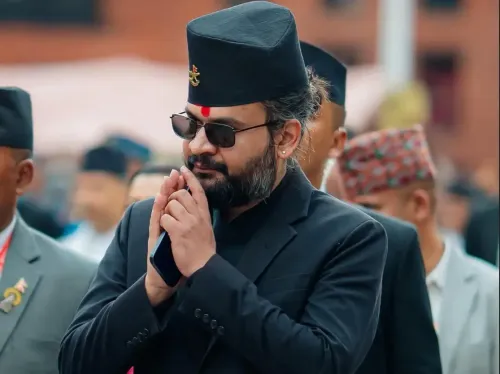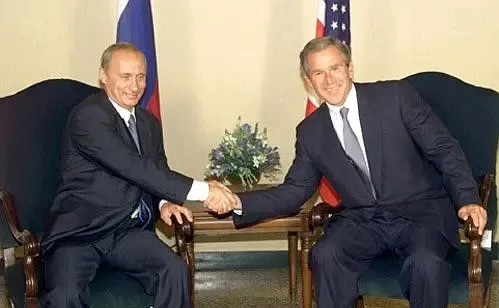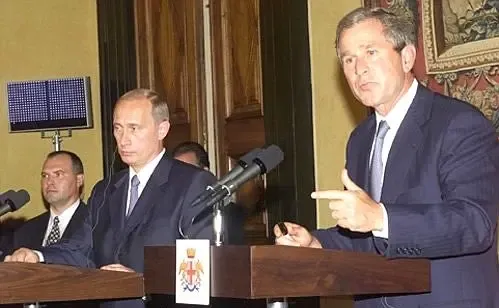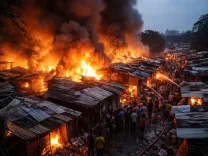Are European Leaders Intensifying Sanctions on Russia and Strengthening Support for Ukraine?
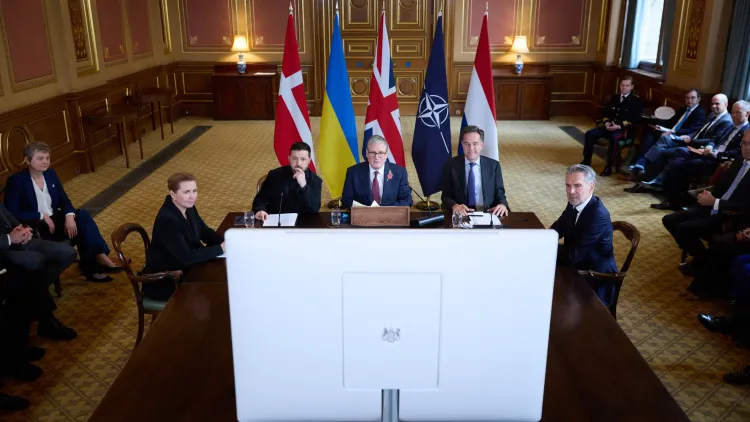
Synopsis
Key Takeaways
- European leaders are intensifying sanctions against Russia.
- The UK is leading efforts to sanction Russian oil and gas.
- Over 5,000 missiles are being supplied to Ukraine.
- Russia's gas sector has been targeted for the first time.
- Putin insists sanctions will not harm Russia significantly.
London, Oct 25 (NationPress) In a significant move, European leaders and NATO's chief have pledged to enhance sanctions against Russia while simultaneously accelerating the provision of long-range strike and air defense weapons to Ukraine, following the recent 'Coalition of the Willing' meeting held in London.
During a joint press conference, British Prime Minister Keir Starmer and other European leaders emphasized that this coalition's goal is to systematically eliminate Russian oil and gas from the global market. Additionally, they plan to utilize frozen Russian assets to support the reconstruction of Ukraine.
Starmer highlighted that the UK is leading the charge in fully sanctioning Russian oil and gas, with the United States and the European Union following suit. He revealed that Britain intends to supply Ukraine with over 5,000 lightweight multirole missiles, with an initial delivery of 140 missiles ahead of schedule, according to reports from Xinhua news agency.
On Thursday, Ursula von der Leyen, President of the European Commission, announced that EU member states had approved the bloc's 19th round of sanctions against Russia, marking the first time the natural gas sector—an essential component of Russia's economy—has been targeted.
This development follows the US Treasury Department's announcement of sanctions against Russia's two largest oil producers, Rosneft and Lukoil, aimed at pressuring Moscow to agree to an immediate ceasefire in Ukraine.
In response, Russian President Vladimir Putin stated that the new US sanctions would have minimal impact on Russia's economic stability. He described the sanctions as an 'attempt to exert pressure on Russia' and labeled them as 'unfriendly,' asserting that they do not improve Russia-US relations.
Addressing comments made by US President Donald Trump regarding the cancellation of a planned meeting with Putin, the Russian leader expressed that Russia has always favored ongoing dialogue and cautioned against approaching the Russia-US summit without adequate preparation.


